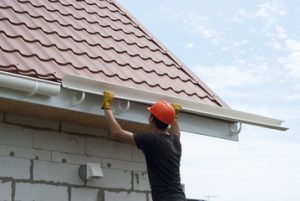Whether you’re looking to give your home a facelift or simply make the neighbors green with envy, a professional pressure wash is the way to go. It’s safer, more effective than a regular hose, and a smart investment for your property.

The forceful water carries kinetic energy and creates turbulence that breaks down contaminants and makes them easier to remove. Keep reading the article below to learn more about Pressure Washing Services.
The visual presentation of a home, business, or commercial property is what catches the eye of those who visit it. This is why boosting the curb appeal of any structure is one of the fastest ways to attract visitors and potential customers. A professional pressure washing service is the best way to ensure a property’s exterior looks its very best. This cleaning method eliminates dirt, grime, stains, and other unsightly substances, giving outdoor surfaces a fresh and vibrant appearance that is sure to impress.
While many homeowners are tempted to take on the task of enhancing their home’s exterior on their own, hiring a professional to perform a thorough cleaning is often more cost-effective in the long run. Professionals have the equipment and skills necessary to get the job done quickly and thoroughly, often in a fraction of the time it would take homeowners to do the work themselves. Hiring a professional also helps homeowners avoid the costs associated with renting or purchasing equipment and learning how to use it properly.
In addition to enhancing a property’s aesthetic appeal, professional pressure washing can also prevent damage caused by mildew and other harmful substances that build up on outdoor surfaces over time. The gentle force of pressurized water removes grime without damaging or etching surfaces, leaving them looking brand new. In the long run, this translates into a longer lifespan for these surfaces, saving homeowners money on costly repairs and replacements.
Whether you are preparing to sell your property or simply want to enjoy its beautiful exterior, professional cleaning is the best way to maintain your home’s value and stand out in Houston’s competitive real estate market. Professionals at Window Hero have the experience and expertise needed to tackle all your power washing needs, allowing you to rest assured that your property is always in great shape.
Curb appeal is more than just a nice-to-have; it plays a vital role in both property valuation and sales speed. Studies show that homes with a clean, well-maintained exterior are more likely to sell faster and at higher prices than their counterparts. Investing in an expert power washing service is one of the best and most cost-effective ways to boost your property’s curb appeal and make a lasting impression on those who visit it.
Health
The removal of mold, mildew, and dirt from exterior surfaces makes for a more sanitary environment for property occupants. This is particularly important for those with respiratory sensitivities, as mold and pollen commonly cling to exterior materials like shingles or bricks. Pressure washing effectively eliminates these pollutants, minimizing their impact on indoor air quality and offering relief to those with allergy-related conditions.
Moreover, routine cleaning by a local pressure washing service prevents the degradation of building materials like wood or concrete. This is crucial as it postpones costly repairs or replacements, saving homeowners money in the long run. Certain materials like metal or concrete have finite lifespans, which are shortened by contamination and neglect. The application of pressure washing equipment like nozzles and adjustable water pressure efficiently removes debris without damaging surfaces, helping them retain their durability.
Maintaining a clean house exterior also reflects pride in ownership and elevates a home’s value within its neighborhood. Potential buyers are more likely to offer top dollar for properties that look well-maintained and cared for. A professional local pressure washing service helps boost curb appeal by blasting away layers of dirt, grime, and buildup, thereby making your home stand out in its community.
Prevents Damage
Pressure washing is a great way to give your house, deck, sidewalks, and driveways an instant facelift. However, this task is better left to the professionals because incorrect use of the equipment can damage surfaces. Professionals know exactly how much pressure to apply and which cleaning solutions are safe for different materials, so they can blast away dirt and grime without causing harm. This makes them a valuable asset for maintaining the integrity of your home and its exterior.
Untreated, unsightly stains and buildup can damage the appearance of your property and even affect its value. The pristine appearance created by professional pressure washing services boosts curb appeal, making your property stand out among the neighborhood and showing potential buyers that you take pride in your home. In addition, regular maintenance protects your investments by preventing future damage and staving off costly repairs.
Over time, exterior surfaces like siding, rooftops, patios, and driveways accumulate layers of grime, mold, mildew, and other debris. These substances can make surfaces slippery or dull and cause them to deteriorate. Regular pressure washing eliminates these buildups, extending the life of your surfaces and preserving their structural integrity.
When you perform DIY pressure washing, there are several ways that you can damage your property, including using too high of a pressure level, accidentally hitting nearby plants or structures with the water stream, and using harsh chemicals that are damaging to many surfaces. Professional pressure washing uses specialized equipment with proper psi levels and proper water rotation that is safe for most surfaces.
In addition to keeping your property looking beautiful, routine pressure washing prevents costly damage by removing mold and mildew. These harmful substances can damage surfaces, eat into wood and other building materials, and cause other issues that are expensive to repair. By scrubbing these substances away, you keep your family and pets safe while avoiding expensive repairs. Additionally, if you have children and pets who spend a lot of time outdoors, regular pressure washing can reduce the amount of pollen and allergens they inhale. This can improve their quality of life and even help them avoid health issues.
Saves Money
Boosting curb appeal is one of the best ways to improve your home’s value and make it stand out in your neighborhood. A clean exterior adds to a property’s overall appearance, making it look move-in ready and cared for. This helps attract potential buyers and increases the likelihood of selling your home quickly.
Pressure washing removes dirt, mold, mildew, and debris that can cause damage over time. This preventative maintenance also extends the life of your surfaces, saving you money on costly repairs in the future.
Professionals are equipped with the right tools and cleaning solutions to safely remove a wide range of substances from a variety of surfaces, including brick, wood, and concrete. In addition, they know how to use a power washer in a safe way to avoid damaging your property. Attempting to DIY your own pressure washing can result in expensive damage and injury.
Dirty surfaces around your home can affect indoor air quality and trigger asthma, allergies, and other respiratory issues. A thorough cleaning from a professional pressure washer eliminates these contaminants and creates a healthy living environment.
Regular cleaning from a professional pressure washer can help you save on energy costs by eliminating buildup that makes your HVAC system work harder. It can also prolong the life of your roof, siding, and hardscapes.
A well-maintained building and parking lot conveys a sense of professionalism and respect for employees, tenants, and customers. Pressure washing services can remove unsightly dirt, grime, and mold that may detract from your business’s image and brand.
Pressure washing is the most effective way to prepare surfaces for staining, refinishing, and painting. It removes harmful contaminants and allows the new coating to adhere more effectively, reducing the chances of peeling and chipping. The force of the water stream is also effective against moss, bird droppings, and tree sap, all of which can degrade surfaces over time. This preventative maintenance saves you money on costly repair and replacement costs in the future. In addition, it enhances your curb appeal and adds to the longevity of your home or commercial property.








